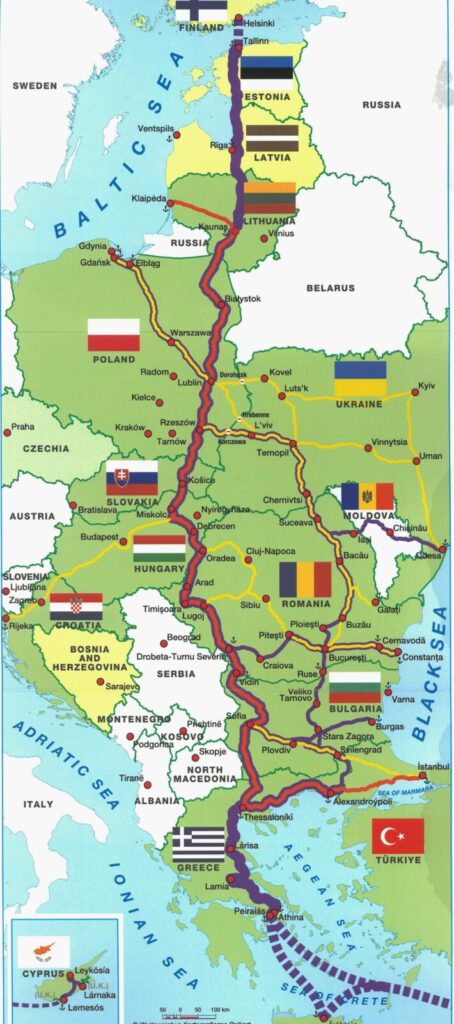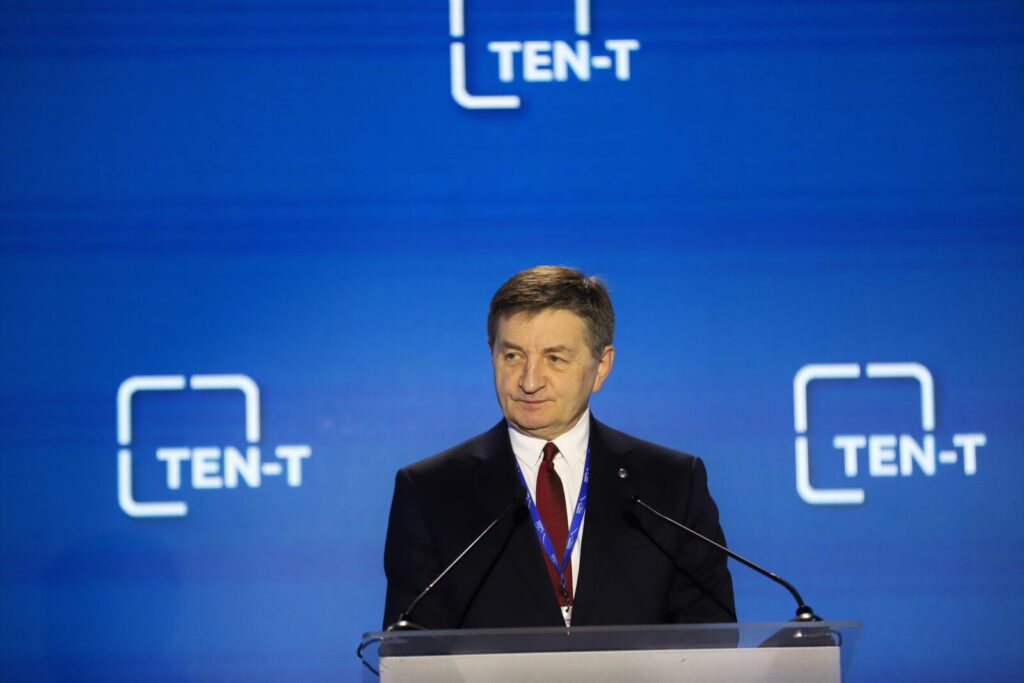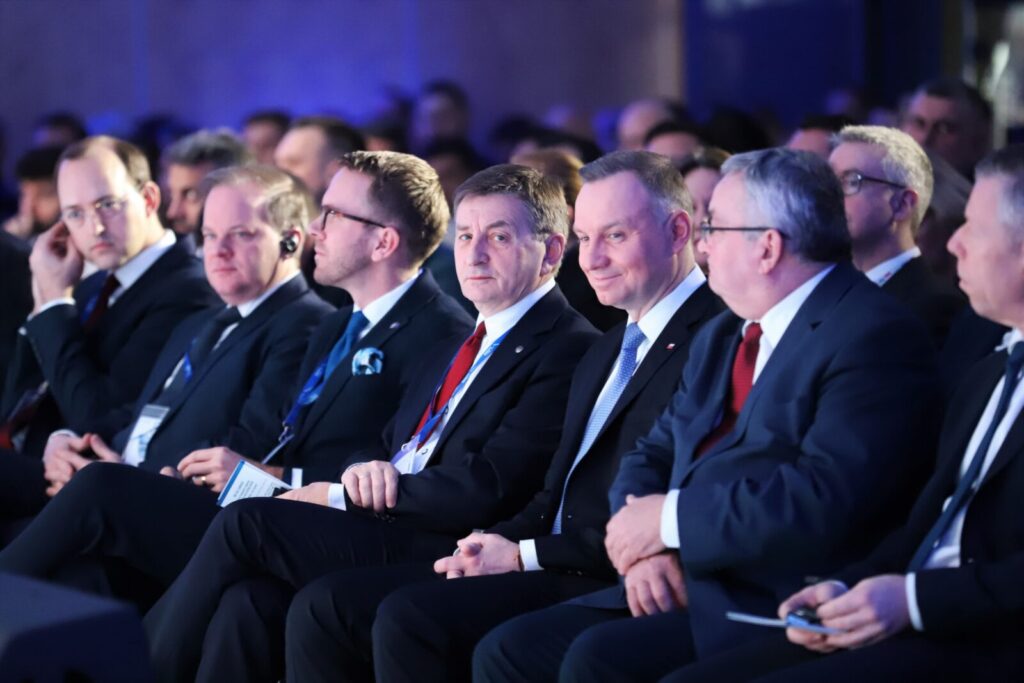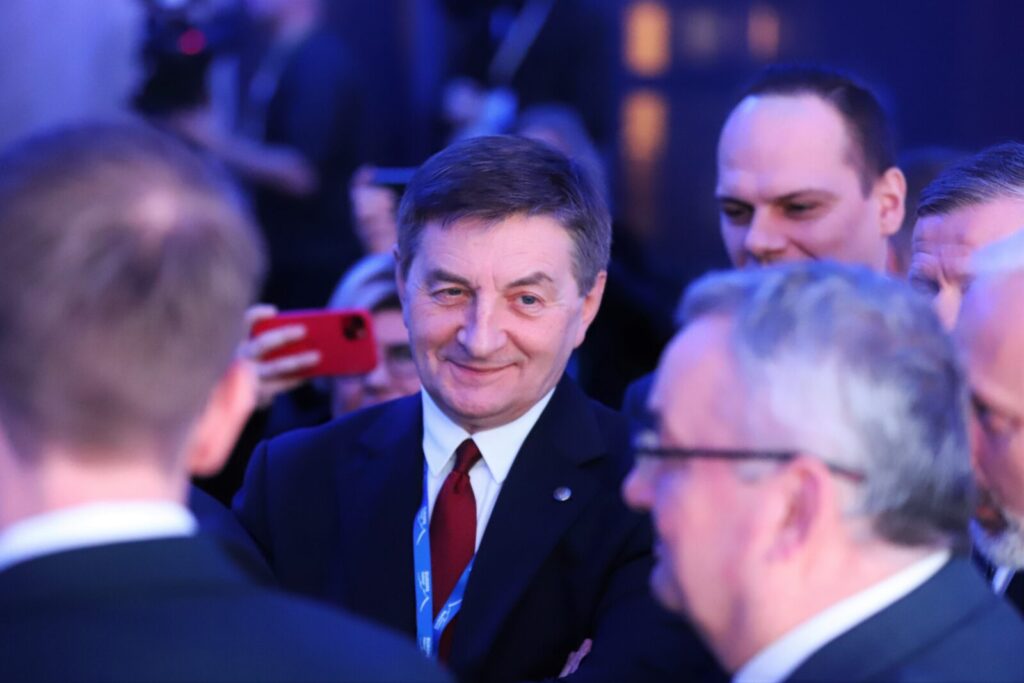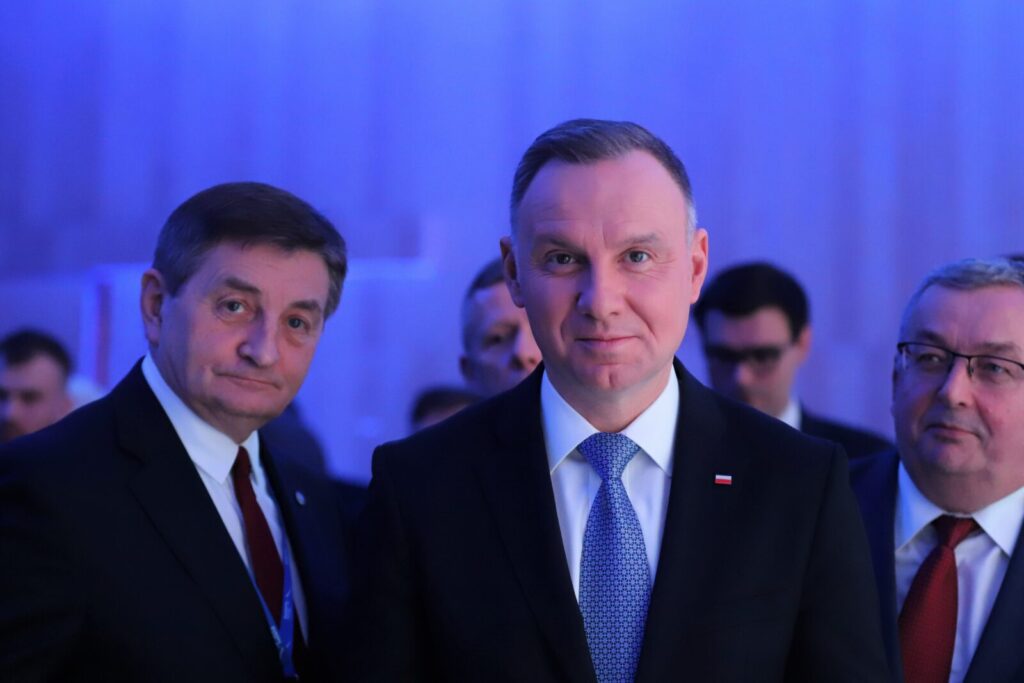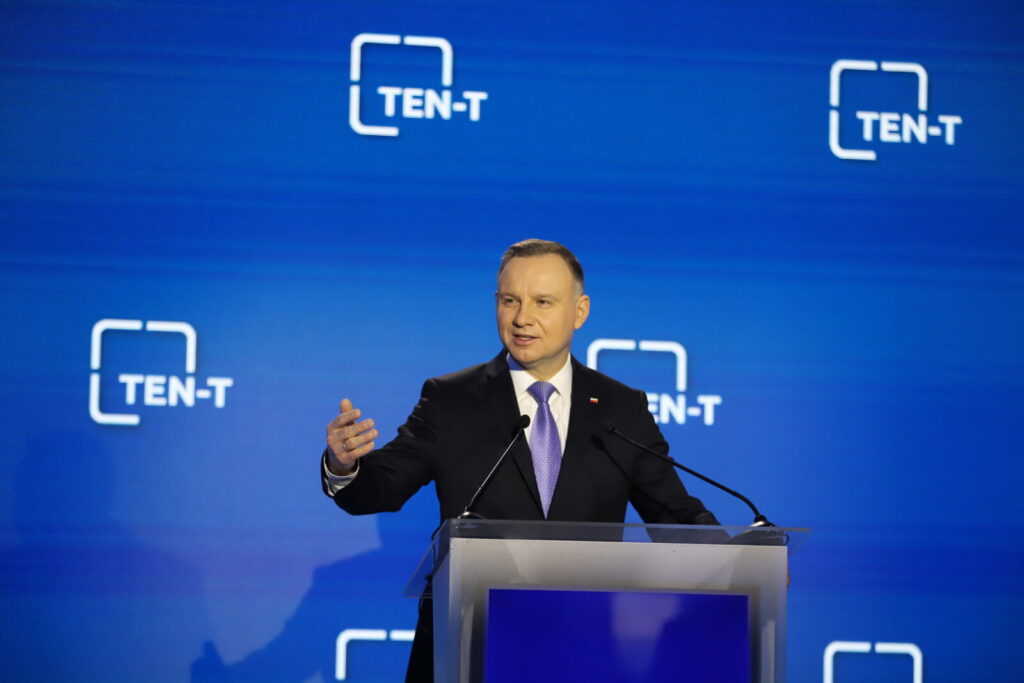The Copernicus Science Center held a conference on the Trans-European Transport Network TEN-T organized by the Ministry of Infrastructure as part of the Europe of the Carpathians series with the participation of President Andrzej Duda, Head of the Chancellery of the Prime Minister Marek Kuchciński and representatives of transport ministries from Poland, Sweden, Ukraine, Lithuania, Romania , Czech Republic and Cyprus.
Via Carpatia - one of the most important international initiatives of the last decades, rightly called by the Minister of Infrastructure the way of life. 30 years ago, as members of countries that freed themselves from communism, we dreamed of wandering around our Europe without borders, and today these dreams are coming true. The history of our interests dates back to 2006 and the conference in Łańcut with President Lech Kaczyński. Today, regional cooperation is developing around Via Carpatia, between the Baltic and Balkan states, Via Culturalia is being created - an initiative of people of culture. I assure you that all representatives of the communities who have been meeting at the Europe of the Carpathians conference for years expect with great hopes that Via Carpatia will facilitate cooperation and ensure security, because, let us remember that, apart from economic significance, it also has military significance - said Marek Kuchciński, originator and long-term organizer of the Europe of the Carpathians conference.
President Andrzej Duda argued that for sustainable development to be possible, good communication is necessary: road and rail. This concerns both the sustainable development of the country and the possibility of communication at the local level, as well as development at the European level - this is the essence of the European Union's cohesion funds. He also pointed out that the issues of communication and transport are also fundamental for the safety of the inhabitants of individual countries and the entire region. The president also emphasized that expressways in the north-south system are finally being built and a lot of work has already been done in this direction. Thank you for it. However, there is much work ahead of us. All capitals and large cities of Central Europe should be well connected: from Helsinki, through the Baltic states, Poland, Slovakia, Hungary, to Bulgaria, Romania and Greece.
The Minister of Infrastructure, Andrzej Adamczyk, pointed out that the role of the countries of Central Europe, the countries of the Three Seas Initiative, is currently crucial. That is why we are developing infrastructure along the north-south axis. These are Via Carpatia and Via Baltica, but also railway investments: Rail Baltica, and in the future also Rail Carpatia. Even 8 years ago, EU institutions did not know what the planned Via Carpatia route was. The voice of our region was not heard, and the position of Poland was widely known. Today, no one in Brussels has any doubts that this is an important issue for the entire community.
The regulations regarding the TEN-T policy adopted by the ministers of transport of the EU Member States are an important element of leveling the historical transport disproportions in Europe and creating a coherent transport network. In the current situation of the war in Ukraine, it also creates new opportunities to strengthen the transport infrastructure as an element of security in the region. The role of the countries of Central Europe, the countries of the Three Seas Initiative, is currently crucial in this context.
Photo by M. Olejnik
